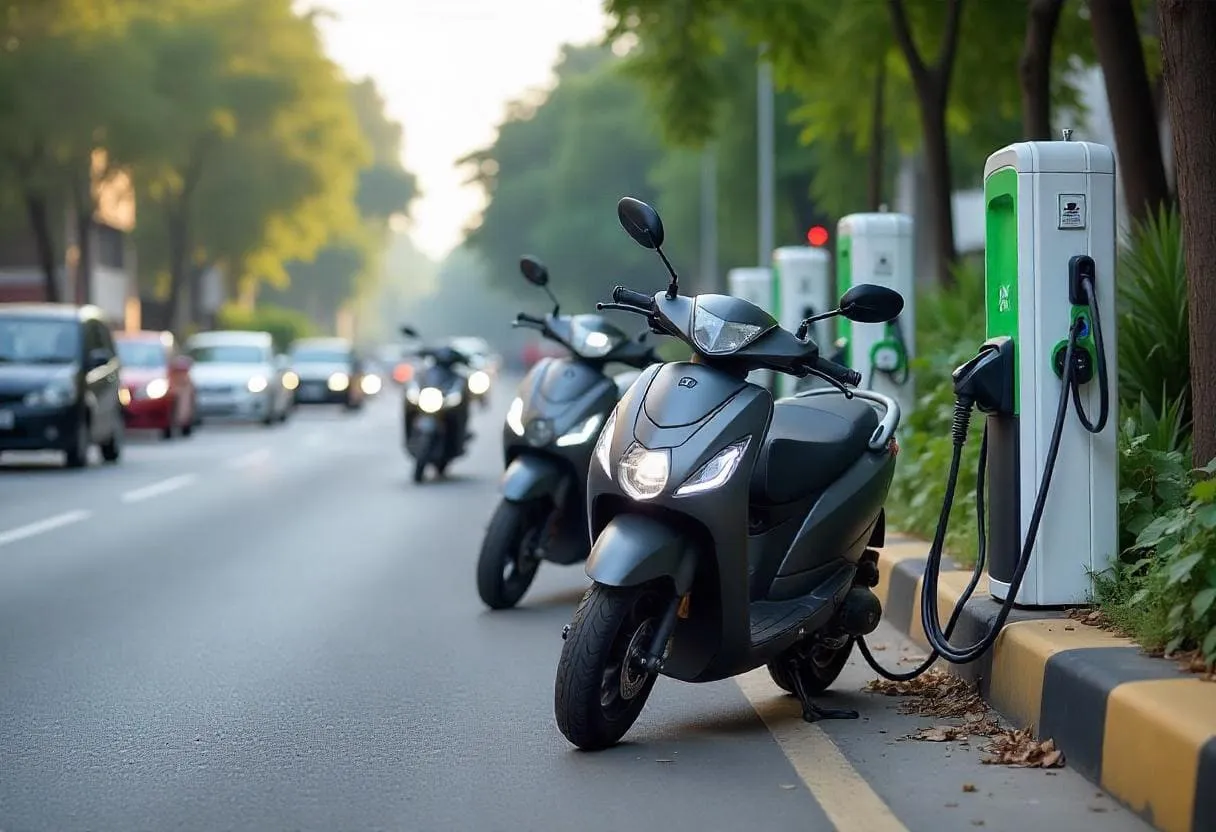India is at the cusp of a transformative era in transportation. As cities grapple with rising pollution and fossil fuel dependency, electric vehicles (EVs) are emerging as the sustainable alternative that offers cleaner air, cost savings, and a modern approach to urban mobility. This revolution is not merely a technological upgrade—it’s a complete reimagining of how we travel.
Table of Contents
- A New Dawn for Urban Mobility
- Building the Infrastructure for Change
- Driving Down Costs Through Innovation
- Changing Mindsets and Popular Perceptions
- Economic and Environmental Benefits
- Want TO Know More About EV
- Embracing the Future Today
A New Dawn for Urban Mobility
Growing traffic and declining air quality in major cities like Delhi, Mumbai, and Bangalore have necessitated greener transportation options. Electric vehicles (EVs) offer a practical answer by lowering noise pollution and carbon emissions. Government programs like the FAME scheme have sped up the transition to electric transportation by providing incentives to both producers and consumers. These regulations help increase public trust in this new technology while also reducing the obstacles to EV adoption. A cultural movement toward sustainable mobility is becoming more and more apparent as more customers discover the advantages of electric vehicles (EVs) in terms of both performance and the environment.
Building the Infrastructure for Change
The poor infrastructure for charging electric vehicles was one of the main obstacles that earlier hampered the progress. Today, a significant amount of money is being invested in this crucial field by both public and private businesses. Rapid charging stations are being progressively placed across urban areas, while smaller communities are also seeing the emergence of creative alternatives like solar-powered chargers and battery switching facilities. Thanks to these developments, travelers may replace or recharge their batteries in a few minutes instead of having to wait for hours. Since EV users now have more convenience and flexibility thanks to the growing network of charging stations, electric transportation is now feasible throughout India’s varied geography.
Driving Down Costs Through Innovation
The adoption of innovative technology has frequently been hampered by cost. Even while an EV may cost more upfront than a traditional car, the advantages over time are strong. The lifetime savings on EV ownership are mostly attributed to cheaper fuel prices, lower maintenance costs, and accessible government subsidies. To increase battery efficiency and reduce production costs, manufacturers are making significant investments in research and development. This trend is best shown by models like the Tata Nexon EV and several future releases, which provide cutting-edge technology at progressively more affordable costs. As these developments proceed, electric cars are quickly establishing themselves as both a cost-effective and ecologically responsible choice.
Changing Mindsets and Popular Perceptions
For long years, many Indian buyers only associated classic gasoline or diesel automobiles with power and dependability. But this story is being rewritten by the EV revolution. Modern electric cars are equipped with cutting-edge technologies like over-the-air software upgrades, integrated driver-assistance systems, and smart connection. Both tech-savvy and eco-conscious drivers will enjoy the dynamic driving experience created by these contemporary additions. The stigma associated with electric vehicles is gradually fading as a result of favorable evaluations, test drive experiences, and the sharing of success stories by prominent early adopters. People’s perspectives are changing; more people now understand that adopting electric vehicles is a step in the direction of a sustainable future.
Economic and Environmental Benefits
The advantages of moving to electric cars go well beyond financial savings. At the macroeconomic level, the expansion of the Electric Vehicles sector promotes regional production, generates employment, and advances technology. Energy security is improved, and foreign exchange is preserved by a decreased dependency on imported fossil fuels. Reducing greenhouse gas emissions and other pollutants is essential to the fight against climate change. Urban regions with cleaner air can see a decrease in respiratory conditions and an improvement in public health. In India’s larger commitment to sustainability and responsible development, the EV revolution is an essential component.

Want TO Know More About EV
Charging Your Drive with Electrifying Insights?
Embracing the Future Today
Although there are still obstacles to overcome, the transition to electric transportation is already under way. Ongoing focus is needed on projects like Electric Vehicles, extending the charging network into rural and isolated locations, properly recycling spent batteries, and guaranteeing smooth supply chains for parts that are in high demand. However, India is well-positioned to overcome these obstacles because of the combined momentum of encouraging government policies, quick infrastructure development, and a changing consumer attitude.
Electric cars signify a cultural shift toward adopting technology that benefits both the economy and the environment, going beyond simply changing the fuel we use. Every electric car on the road today is evidence of our dedication to a healthier, greener future, development, and innovation.
Join the movement—ride the revolution and help shape a new chapter in India’s journey toward sustainable mobility.
If you want to get any more information, then follow my Instagram account

